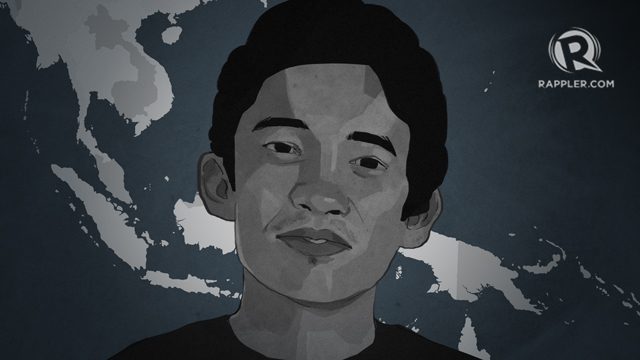SUMMARY
This is AI generated summarization, which may have errors. For context, always refer to the full article.

MANILA, Philippines – The Philippine National Police (PNP) on Monday, November 6, announced that Amin Baco is the new leader of the Islamic State (ISIS) in Southeast Asia.
Citing police intelligence, PNP chief Director General Ronald dela Rosa said Baco is leading the remaining Maute Group fighters in Marawi City.
He allegedly took over as ISIS emir in the region after Isnilon Hapilon, one of the masterminds of the Marawi siege, was killed past midnight on October 16. His death, together with Omar Maute, supposedly signalled the end of the war. (READ: The war in Marawi: 135 days and more)
PNP Deputy Director for Operations General Rolando Mendez identified Baco, believed to be 34 years old, as “one of the most experienced terrorists” in the country.
But who is Baco?
From Tawau to Mindanao
Baco is a native of Tawau, the third-largest town in Sabah, Malaysia.
He was a former member of Darul Islam (DI) Sabah network – a faction that emerged after Indonesia’s Darul Islam split from Jemaah Islamiyah in 1993, according to a report by the Institute for Policy Analysis of Conflict (IPAC) in 2016.
The group is said to have facilitated the smuggling of terrorists and firearms between the two countries.
In 1999, the report said Baco was among the men whom the Tawau cell of the DI sent to fight in Ambon, Indonesia. He allegedly used the alias “Hasan” then.
The report also traced the training Baco underwent prior to his involvement in the Marawi siege. In 2000, he began training in Mangkutana in South Sulawesi, Indonesia before he transferred to Pendolo where “jihadis from several organizations had camps.”
According to a report by the Straits Times, Baco left Malaysia, where he was listed among the most wanted in 2010, to join the Abu Sayyaf. IPAC, meanwhile, believed that Baco still facilitated the travel of DI members to Mindanao “for training and purchases” in 2011.
In the Philippines, the Malaysian national eventually married into a family based in Jolo, Sulu. IPAC pointed out that his father-in-law is Hatib Sawadjaan – one of sub-commanders of Abu Sayyaf leader Radullon Sahiron.
Dela Rosa on Monday said that Baco was trained by fellow Malaysian Zulkifli Bin Hir alias Marwan who was killed during the botched Mamasapano operation in 2015. (READ: EXCLUSIVE: Marwan’s ties that bind: From family to global terrorism)
How powerful?
But the extent of Baco’s power to lead stragglers in Marawi City or even ISIS in Southeast Asia is being questioned by authorities.
Defense Secretary Delfin Lorenzana dismissed Baco’s ability to lead ISIS in Southeast Asia, saying that he could be a “middle level” terrorist operative. (READ: New ISIS emir? Lorenzana dismisses threat from Amin Baco)
He added that Baco “can no longer mass up that number of troops the way Isnilon did in Marawi.”
The military, meanwhile, believes that the Malaysian “terrorist” may even be dead after they attacked a building in the battle area where he is believed to be hiding.
Dela Rosa, however, said that they have raw information which indicates Baco may have already escaped from the main battle area. – Rappler.com
Add a comment
How does this make you feel?
There are no comments yet. Add your comment to start the conversation.